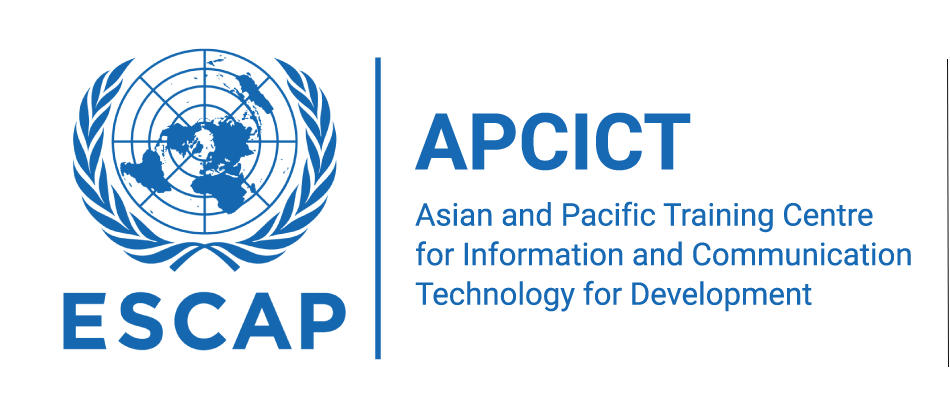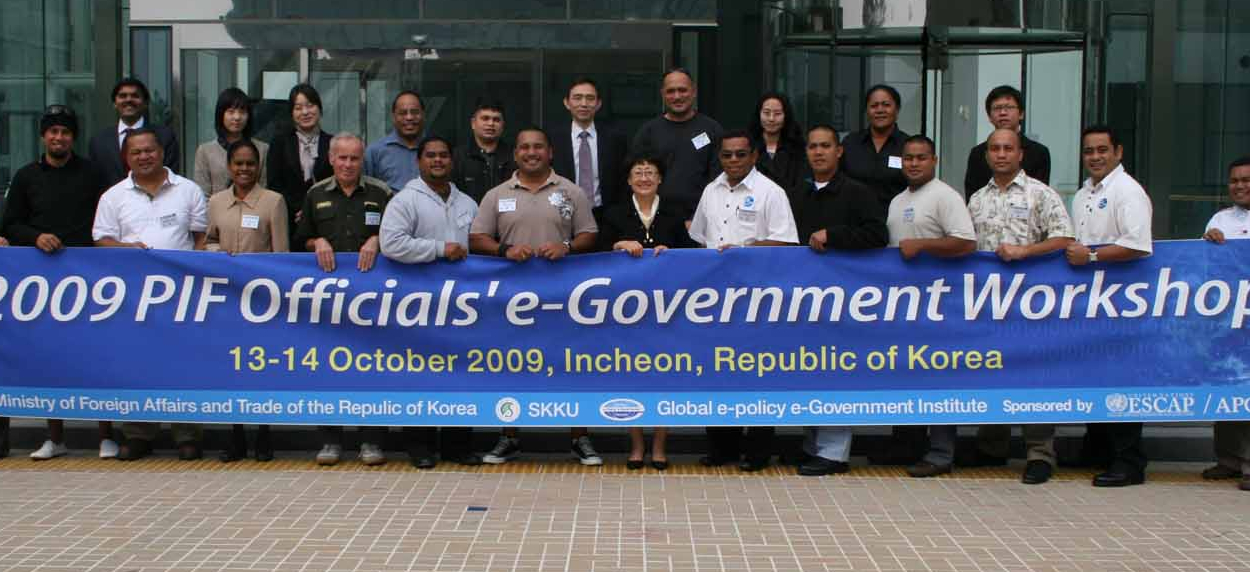On 12-23 October 2009, government officials from Pacific Island states took part in an intensive e-government training in the Republic of Korea, organized by the Pacific Islands Forum and the Republic of Korea’s Ministry of Foreign Affairs and Trade, with support from APCICT. APCICT delivered Academy sessions on e-government and ICT project management.
23 October 2009
Press Release No: G/70/2009
Bangkok (UN/ESCAP Information Services) - Sixteen government officials from eight Pacific Island States have completed an intensive two-week training programme on e-government, as part of the continuing efforts of the regional arm of the United Nations to provide Pacific governments with the tools they need to embrace information and communication technology (ICT) as a development tool.
The course – running from 10 to 23 October 2009 – was co-organized by the Asian and Pacific Training Centre for Information and Communication Technology for Development (APCICT), which is a regional institute of the United Nations Economic and Social Commission for Asia and the Pacific (ESCAP), together with the Pacific Islands Forum, the Republic of Korea’s Ministry of Foreign Affairs and Trade, and the Global e-Policy and e-Government Institute of Sungkyunkwan University.
The participants learned ways to transform government operations and improve public service delivery through the use of digital technologies. APCICT delivered a module on e-Government from its flagship region-wide training curriculum, known as the “Academy of ICT Essentials for Government Leaders.”
“The module examines e-government concepts, principles and types of applications. It also discusses how an e-government system is built, and identifies key success and risk factors in e-government implementation,” explained Nag Yeon Lee, author of the module.
“E-Government has been used as a strategic tool to modernize structures, processes and the overall culture of public administration,” said Ms. Hyeun-Suk Rhee, Director of APCICT. “Many governments around the world are putting critical information online, automating once cumbersome processes, and interacting electronically with their citizens. A well-planned e-government strategy can make governments more efficient, accountable and transparent.”
APCICT has been actively helping Pacific Island States to embrace ICT for development. It has been collaborating with the Pacific Islands Applied Geoscience Commission (SOPAC) over the past year and has rolled out the Academy in the Cook Islands, Kiribati, Samoa, Tonga and Tuvalu.
The European Union recently committed funds for SOPAC’s Project on ‘ICT Access for the Poor’. This project aims to enhance the ICT capacity of legislators and policymakers in 14 Pacific Island States using APCICT’s Academy programme.
To keep up with rapid technological advancements and shifting development priorities, APCICT is committed to further expanding existing modules and developing new ones, including on ICT for disaster risk reduction and climate change.
“In light of recent catastrophes in the Pacific, it is my vision that the Academy will help Pacific Island States narrow ICT human resource gaps, and promote the effective application of ICT for sustainable development and safer communities,” added Ms Rhee.



